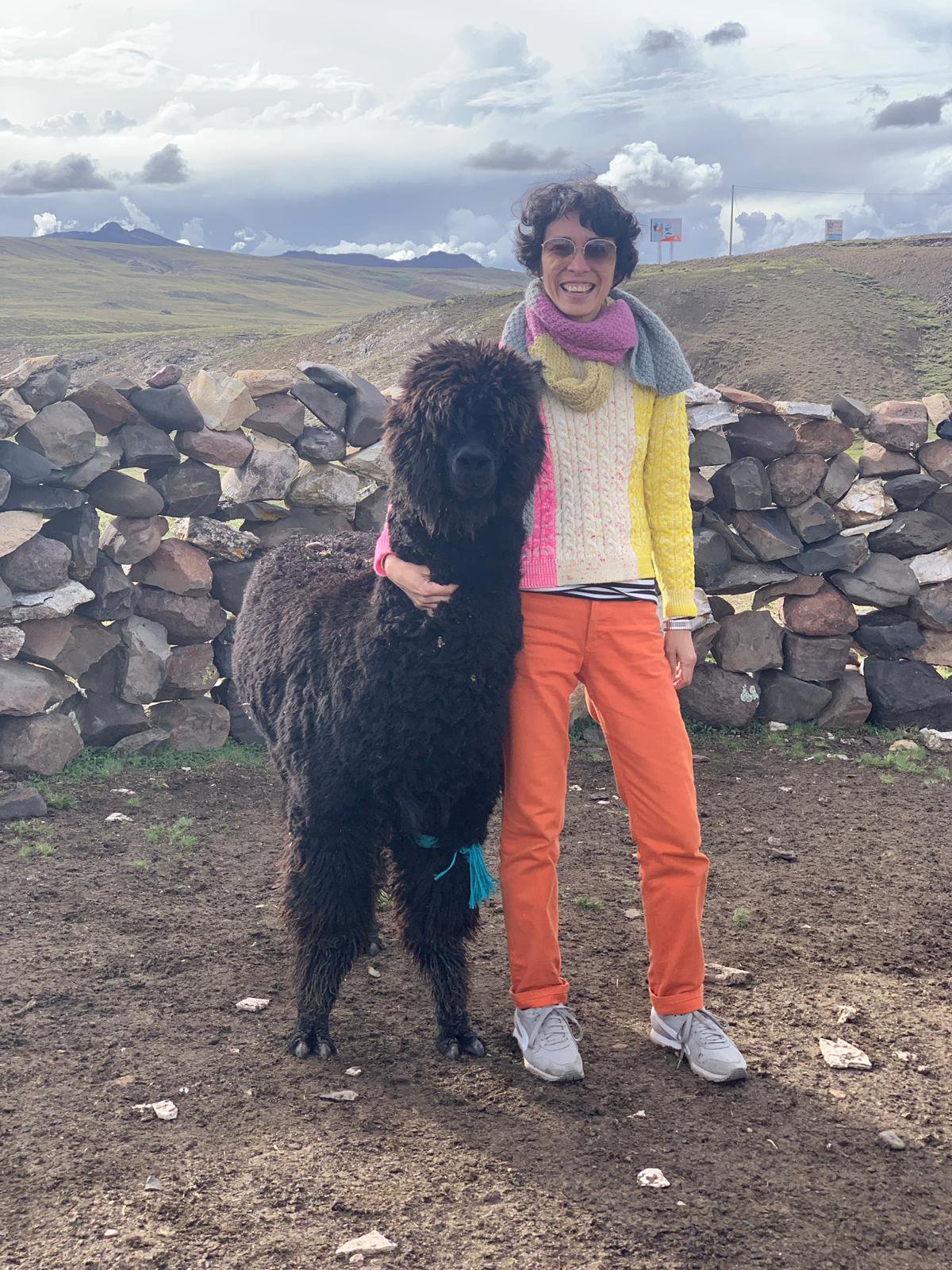The incredible properties of alpaca fiber
Wool of the gods
Alpacas, whose wool we use, live freely in their natural habitat in the Peruvian Andes, above 4000 meters. The use of the animals began around 3000 years ago. Spanish conquistadors then brought sheep to South America and displaced Peru's alpacas, which almost became extinct. Breeding of the animals was resumed with the departure of the Spaniards.
Alpaca fiber has very special properties due to the extreme environmental conditions in the mountains. The temperature fluctuates between 20 degrees plus and 20 degrees minus. The difference between day and night alone can be 30 degrees.
The enormous insulating effect is partly due to the fact that the fiber is hollow. At the same time, it is much better at balancing out temperature fluctuations between the outside and inside, which minimizes overheating when coming inside. Our Arequipa sweater is therefore very comfortable to wear on freezing winter days and even on summer evenings. In addition to the cold, the wool even protects against heat, which it virtually repels.
The fibers are also more durable and three times more tear-resistant than sheep's wool. The soft skin feel of alpaca wool is created by the particularly fine fibers, which prevents the scratching effect that other wools can cause. Compared to sheep's wool, alpaca wool is much lighter, which enhances the exceptionally soft feel. The fineness of the fiber's scale structure also ensures a natural sheen and special color intensity.
Furthermore, the fiber absorbs very little moisture (only 25%), making it highly water-repellent. Sweat is absorbed by the hollow fibers and quickly wicked away.
The special thermal properties are enhanced by the very high fat content, which makes the fiber extremely dirt and odor repellent. However, the wool grease lanolin is only present in very low concentrations, which means that bacteria cannot multiply on the surface and die off. The fiber has an antibacterial effect and is hypoallergenic.
Protein molecules also neutralize sweat bacteria and thus odour formation. Alpaca wool is also flame retardant (only at 560° C) and protects against UV radiation.
Care is only very rarely necessary. Airing in the fresh, damp air at night is almost always sufficient. Hand washing with a wool detergent is also possible. The pilling effect of other types of wool is almost non-existent with alpaca.
Alpaca clothing can be described as natural functional clothing - and without the harmful effects of chemical compounds. In addition, our model does not use any synthetic fibers or microplastics in the manufacturing process.
Alpacas can be shorn much more easily and calmly than sheep due to their calm, friendly character and their curious nature towards humans. Our owners do this in a very sensitive way, the animals are naturally part of the family and even have names. This type of farming has been practiced almost unchanged in the Andes for thousands of years. The herds have free range, which prevents the destruction of grassland and erosion.
These unsurpassed characteristics have led to alpaca wool being called the gold of the Incas and the fleece of the gods in South America. All this makes alpaca seem like a miracle - and it is.
This wearing comfort can be tested in our Maqu Store & Studio.

